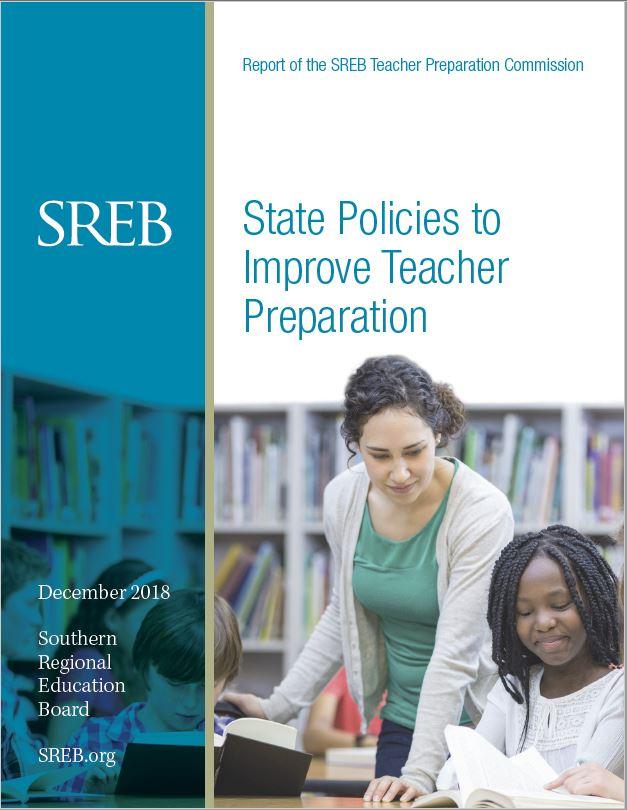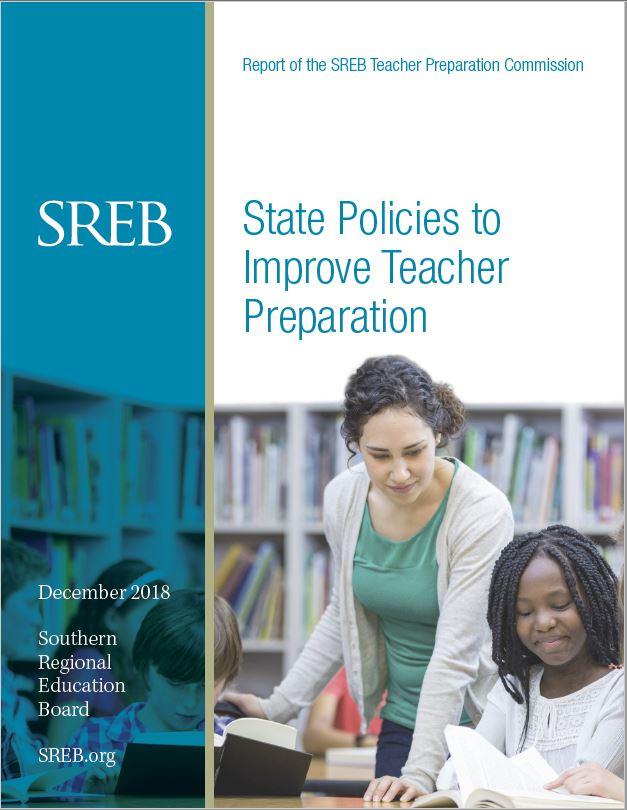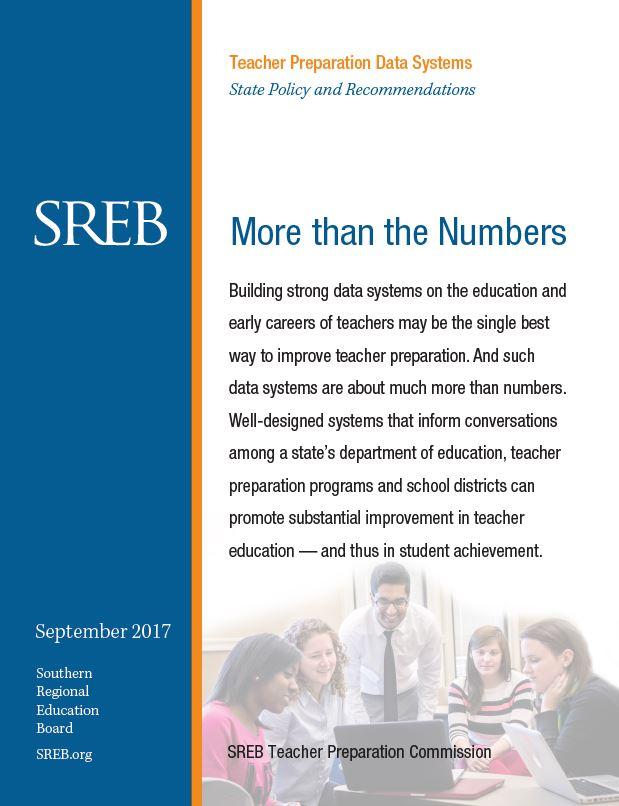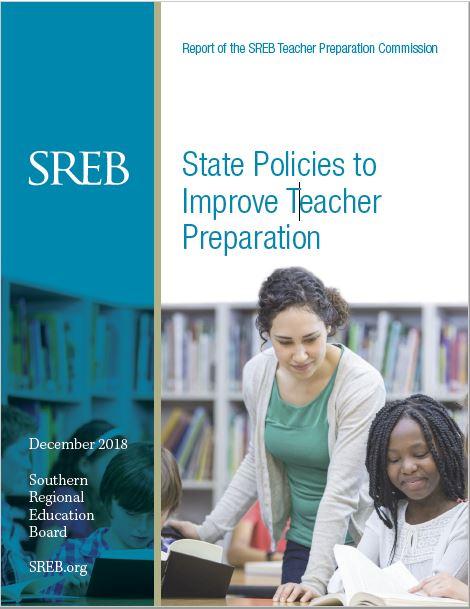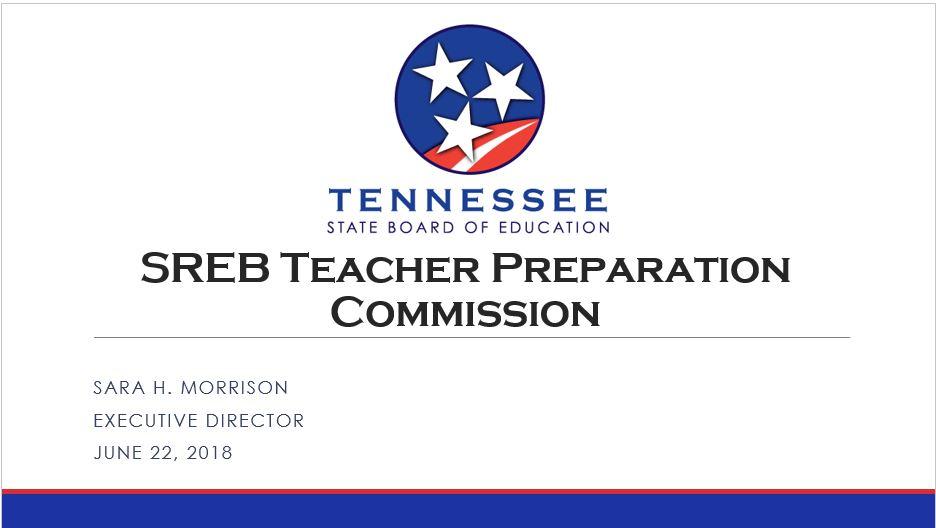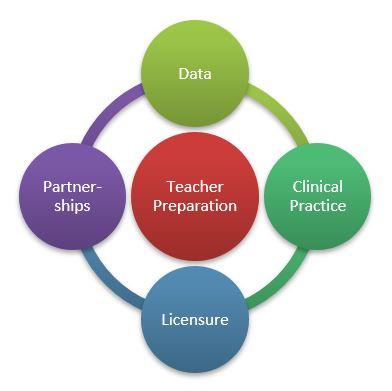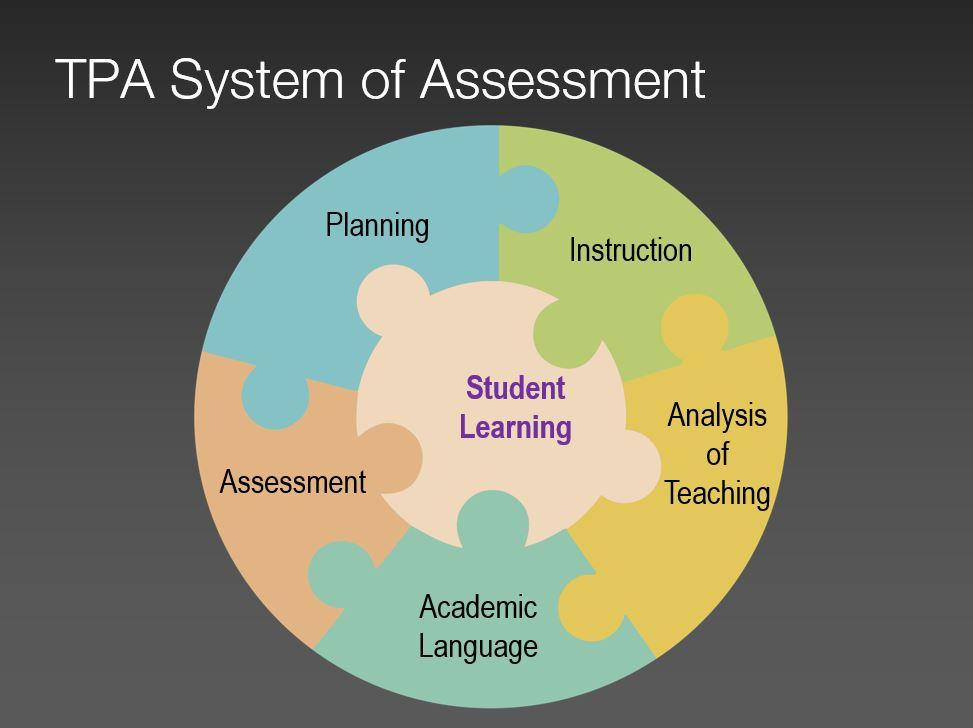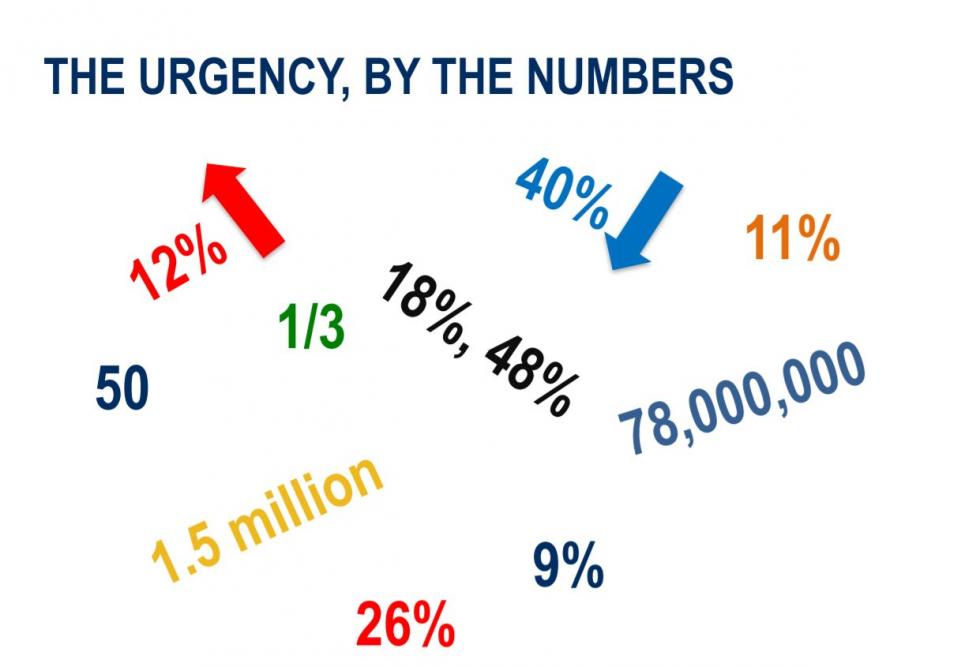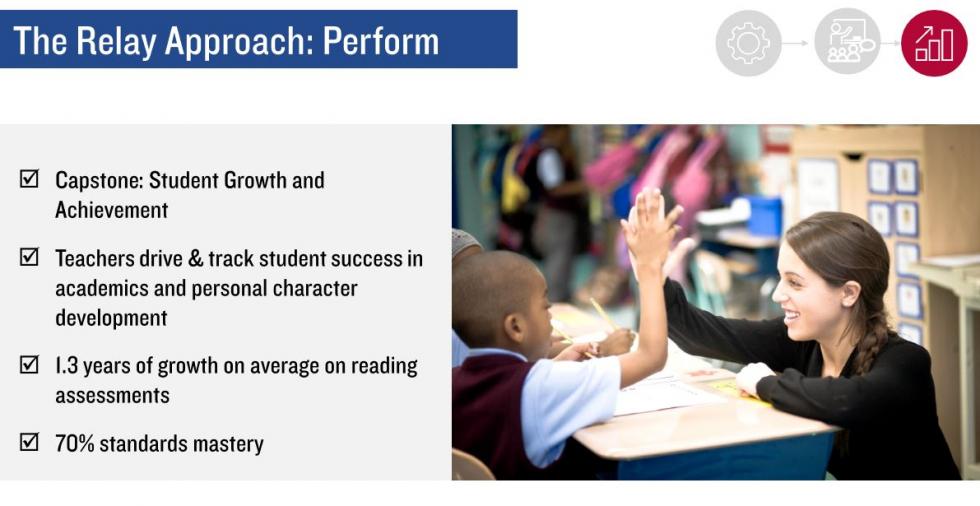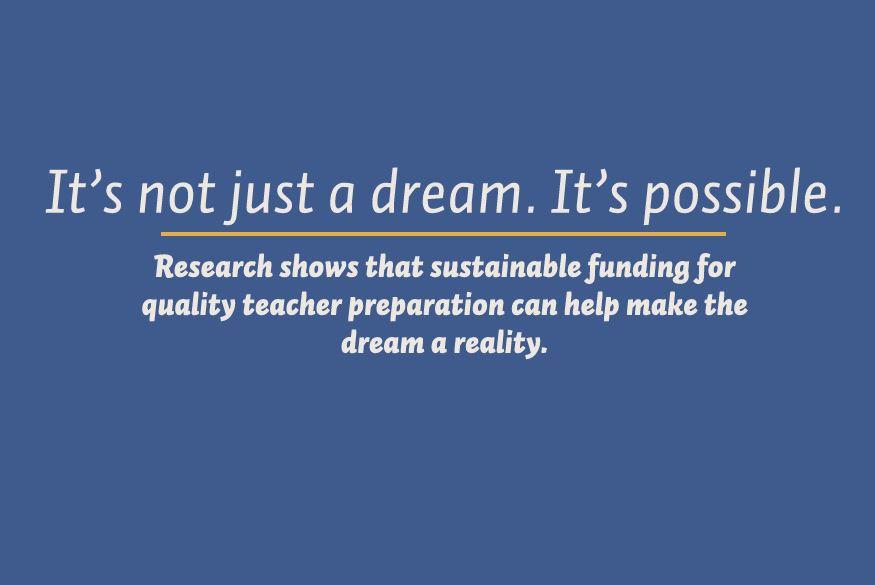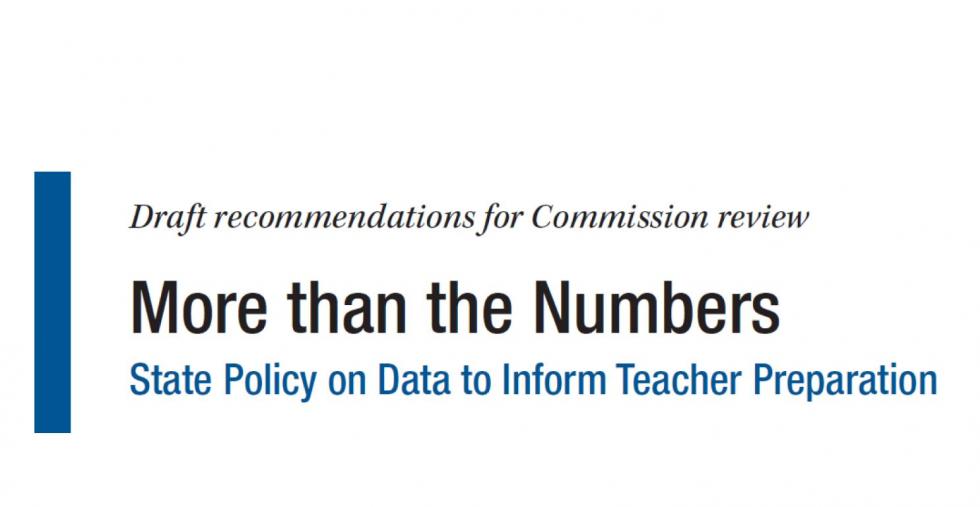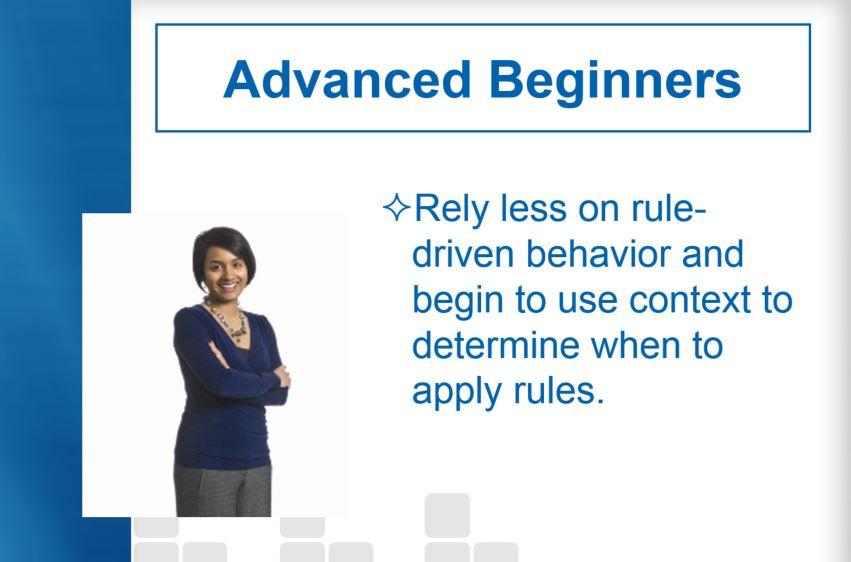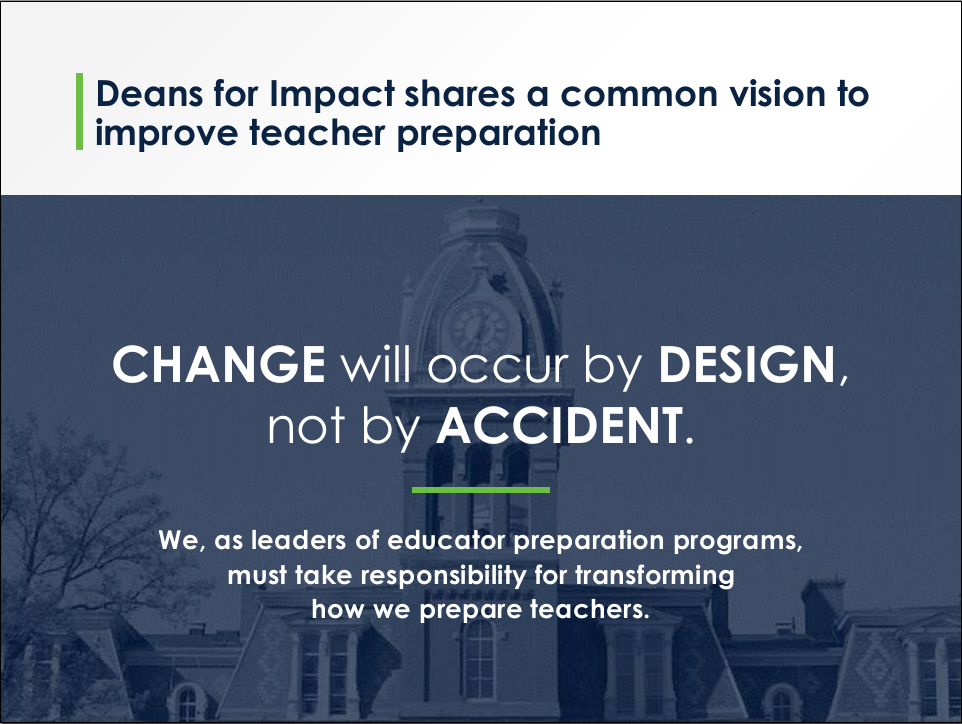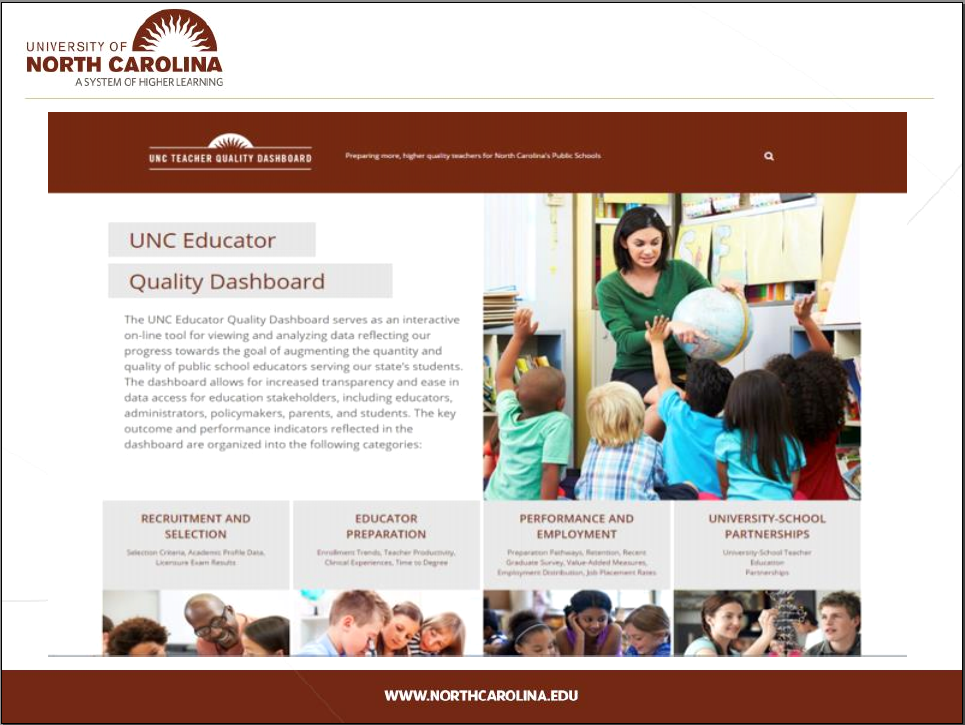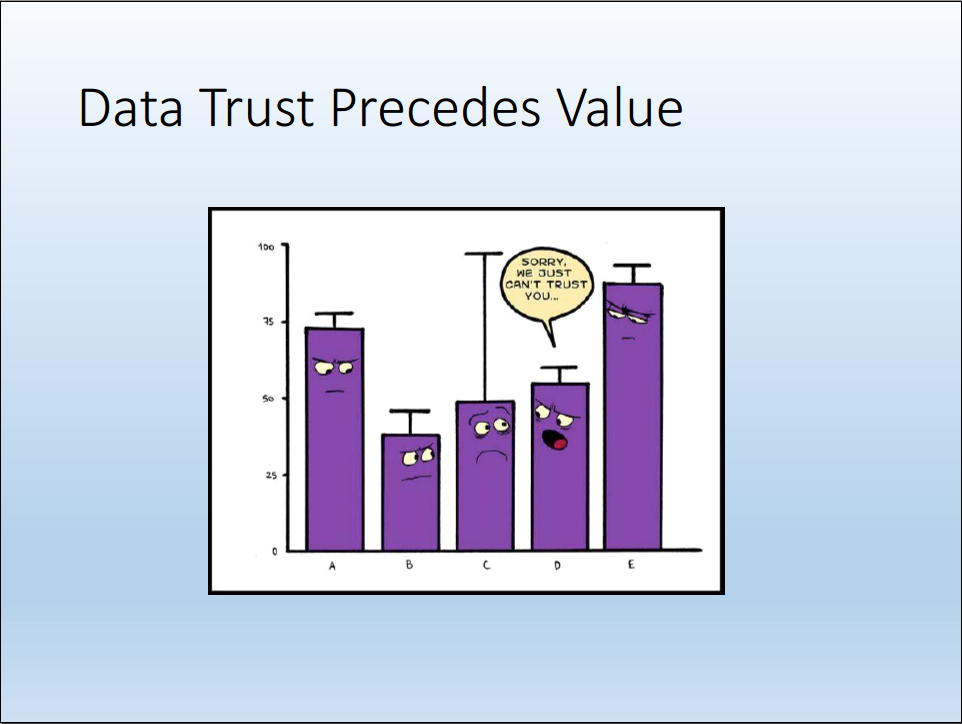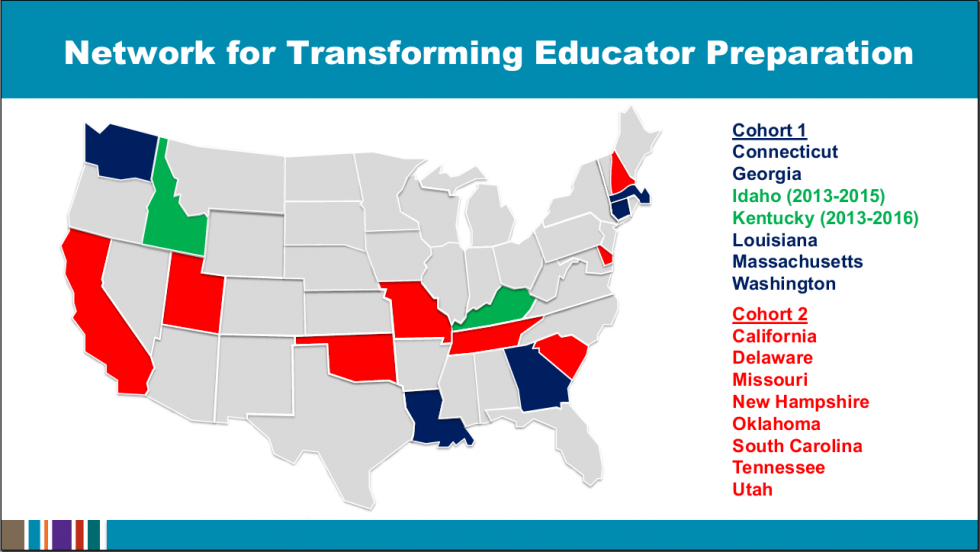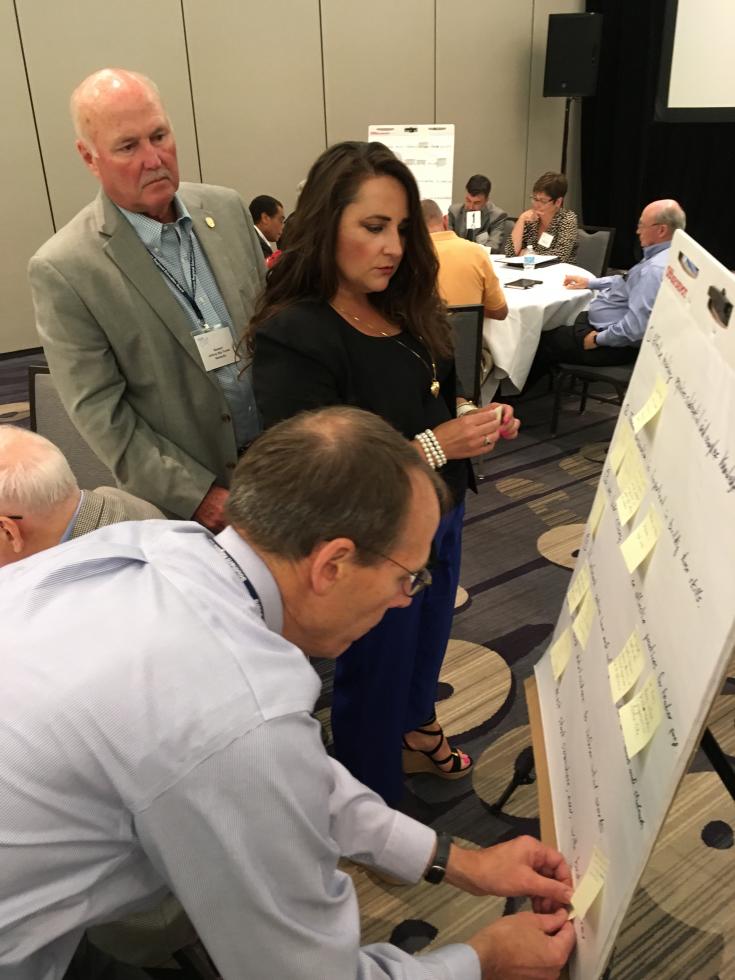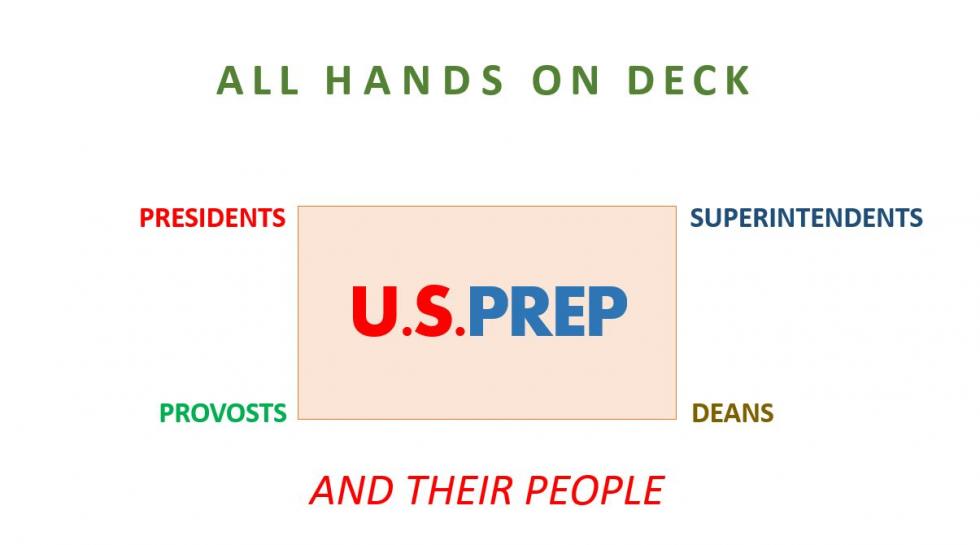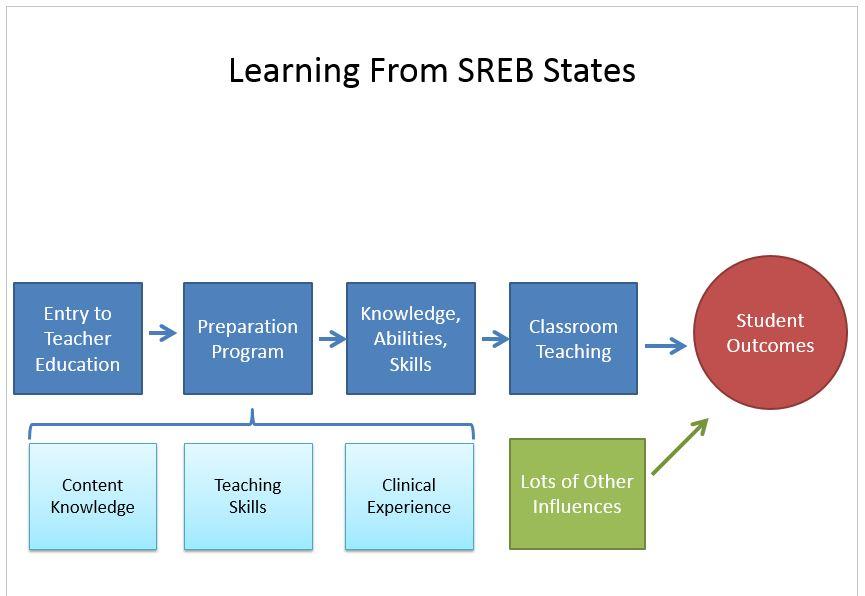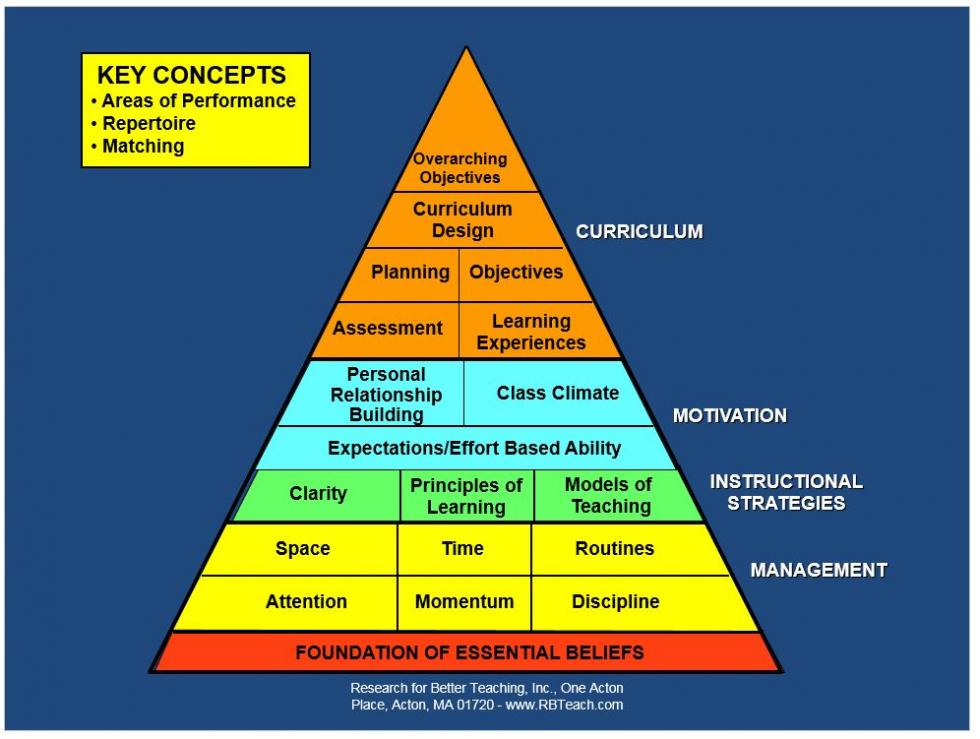Teacher Preparation Commission
Teacher Preparation Commission
How can state policy improve the preparation of teachers?
The SREB Teacher Preparation Commission met during 2016, 2017 and 2018 to develop practical and effective statewide recommendations to improve teacher preparation programs.
“A great teacher can change the trajectory of a student’s life, which is why every student deserves an excellent educator,” said Louisiana Governor John Bel Edwards, who chaired the Commission. “Given its importance, teaching should require a firm grounding in initial preparation, close mentoring in the early years, and continued professional learning.”
State Policies to Improve Teacher Preparation
Report of the SREB Teacher Preparation Commission
To improve the effectiveness of new teachers, the SREB Teacher Preparation Commission called on states to:
Using Data to Transform Teacher Preparation
The SREB Teacher Preparation Commission has called on state leaders to build data systems that will improve preparation programs. The commission identified three groups that would benefit from robust and accessible data:
- Individuals choosing where to enroll
- Preparation providers interested in improving their strategies
- Policymakers considering changes to state requirements
Using Data to Improve Teacher Preparation
Panelists from several states share their insights about how outcomes data and formative evidence collected during clinical experiences can improve teacher preparation. The SREB Teacher Preparation Commission recommended policymakers implement statewide data systems that prompt program leaders to transform practice.
Making Sense of Changes to Teacher Preparation and Licensure
SREB state legislators introduced over 4,600 education bills in 2019 regular sessions. At least 850 of these bills will become law, with roughly one hundred this year relating to teachers and principals. Here’s how seven notable bills align with SREB’s Teacher Preparation Commission recommendations.
Spotlight on Clinical Experiences
How State Leaders Could Support High-Quality Clinical Practice
The SREB Teacher Preparation Commission called on state leaders to consider ways to improve the quality of teacher candidates’ classroom experiences. After consulting the research, Commission members learned that the length of a clinical experience is less important than ensuring that candidates are supported by effective mentors and supervised by university faculty who have experience in the classroom.
Getting the Balance Right
Reconsidering the Mix of Teacher Licensure Measures
The SREB Teacher Preparation Commission called on state leaders to adopt practice-based assessments. These tests assess candidates’ readiness to lead a classroom and to apply lessons learned during coursework and clinical experiences.
Practice-based assessments have diagnostic value, meaning they provide performance data that educator preparation programs can use to identify strengths and opportunities for improvement. State agencies could use the assessment data to determine how they will provide technical assistance to preparation programs.
Rethinking State Teacher Licensure Requirements
This webinar explored how measures other than licensure exams — observations, surveys, interviews or portfolios, for example — can round out how states assess the readiness of teacher candidates. Also: how North Carolina is forging ahead to transform its licensure requirements.
More than the Numbers
Teacher Preparation Data Systems: State Policy and Recommendations
This first report from the SREB Teacher Preparation Commission recommends that states build strong data systems as a critical first step in efforts to improve teacher preparation programs. It describes systems in Louisiana, North Carolina and Tennessee as models to learn from and lays out promising practices from these early systems. Three major recommendations cover where the data should come from, what it should cover, and how it should be used.
Clinical Experiences in Teacher Preparation
Issue summary for the Teacher Preparation Commission
June 2017 — Many of the promising innovations in teacher education are centered around clinical practice-teaching experiences for teacher candidates. Year-long residencies in urban schools and tight partnerships between university teacher preparation programs and local school districts are experimenting with ways to best prepare novices for the schools and students in local areas.
Commission Calls for Data Systems to Improve Teacher Preparation
States can take the first step now to learn what works
Building strong data systems on teachers’ education and early careers may be the single best way to improve teacher preparation, says a report from the Southern Regional Education Board Teacher Preparation Commission.
The Importance of Data for Improving Teacher Preparation
Issue summary for the Teacher Preparation Commission
October 2016 — Teacher education programs, state certification offces and school districts have little to no comparative information regarding preparation candidates and graduates. Building strong data systems on the preparation and careers of teachers may be the single best way to improve teacher preparation.
Teacher Education: Expanding the Intersection of Evidence and Policy
Background paper for the Teacher Preparation Commission
June 2016 — Policymakers and researchers need more evidence on what works to improve teacher preparation programs. This paper highlights three promising practices:
- data systems to inform improvement
- revised state licensure requirements
- high-quality clinical experiences
UNC Educator Quality Dashboard
Driving Program Improvement in K16 Education
Alisa Chapman
University of North Carolina
No Easy Answers
Teacher Prep Commission Studies Difficult Issues
State legislators — many of them former teachers, principals or education professors — came together in June 2016 to begin work on one of education’s most challenging issues: recommending policies to improve the programs that prepare classroom teachers.
The commission’s charge is a difficult one, said SREB President Dave Spence, but it has never been more important. The job of teaching is harder than ever, he said. “We expect 80 percent of students to go on to college now, and yet the population is much more diverse and increasingly low-income.”


